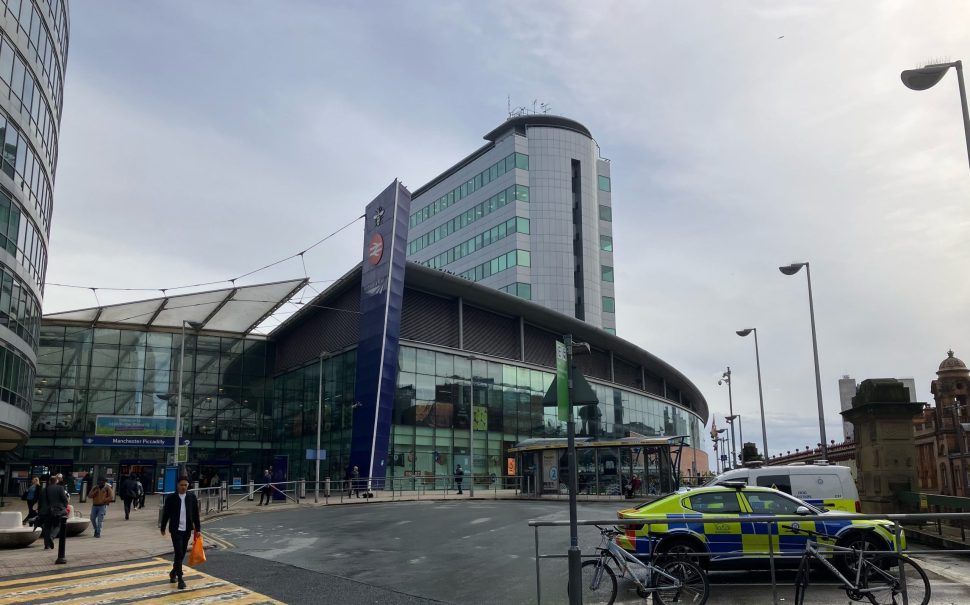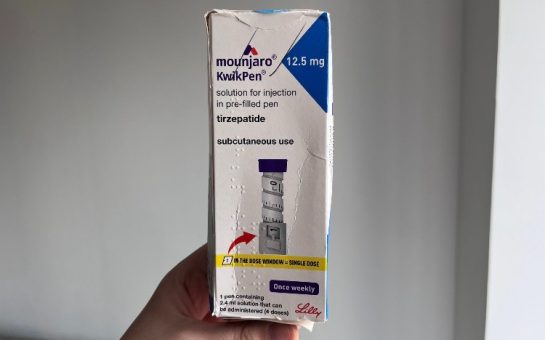A landmark commission report has recommended £22bn of government investment in public transport – with Greater Manchester identified as a key area for funding.
The National Infrastructure Commission (NIC) – which provides independent advice for the Treasury – has made a range of key suggestions to the government in its Second National Infrastructure Assessment.
These assessments occur only once during an election cycle – with the first being produced in 2018.
The Commission advises the government on all sectors of ‘economic infrastructure’, defined as: energy, transport, water and wastewater (drainage and sewerage), waste, flood risk management and digital communications.
It also considers interactions between its infrastructure recommendations and housing supply – however, the latter does not come under its direct jurisdiction.
In today’s report, it has recommended that the government should provide £22bn to be invested in public transport projects – especially those that aim to improve travel conditions and safety.
Additionally, it has suggested that two-thirds of this sum ought to be allocated to Birmingham, Manchester, Leeds, Bristol, and “their wider city regions”.
This comes after the current government’s much-disputed decision to cancel the proposed HS2 leg between Birmingham and Manchester – announced during the Conservative Party’s annual conference at the beginning of October.
According to the Commission, these recommendations have been informed by a variety of factors including:
- The impact of Covid-19 on public transport usage.
- Estimates concerning future demand for public transport.
- Comparisons between major economic hubs across the world.
- Current accessibility to city centres.
Today we've launched the UK's Second National Infrastructure Assessment
— NatInfraCommission (@NatInfraCom) October 18, 2023
It sets out a programme of transformation for the country’s energy, transport, water and other key #infrastructure networks over the next 30 years
Find out more here:#NIA2https://t.co/XwpHLsmd4C
Following the Covid-19 pandemic between 2020 and the early months of 2022, research shows that passenger numbers on public transport decreased drastically and remain below pre-pandemic levels on average.
The NIC found that in Greater Manchester, overall passenger numbers on the bus network were estimated to be around 86 percent of pre-Covid levels in June 2023.
Moreover, commuter trips on the Metrolink tram network were around 88 per cent of pre-pandemic levels on average in January 2023.
This is despite commuter numbers on Tuesdays, Wednesdays and Thursdays typically reaching or exceeding pre-pandemic levels.
Such figures have resulted in revenue for public transport operators sitting below pre-pandemic levels, as a lack of patronage puts this infrastructure at significant financial risk.
In turn, the report recommends that the government should produce substantial funding “to ensure the stability and reliability of public transport networks” – with the Commission hoping that these measures will encourage greater use of commuter options.
The Assessment also addressed the significant regional implications caused by this month’s HS2 announcement.
It identifies that the construction of this line, as well as the subsequent development of the Northern Powerhouse Rail project, would have brought about great improvements for north-south and east-west rail connectivity.
Such enhancements would additionally have included greater accessibility to regional city centres, according to the NIC.
As a result, it believes that the cancellation of HS2’s second leg leaves “a major gap” in the UK’s future rail strategy – especially as many areas based their economic growth plans on the project.
The NIC has therefore called for the implementation of several long-term measures to ensure the North West is not left behind.
These suggestions include a “new comprehensive, long term and fully costed plan” relating to the issue of regional intercity connectivity, road network improvements, and the provision of better goods and services trading routes.
It recommends that these proposals are implemented as part of a 30-year-long national strategy concerning inter-urban transport and economic growth.
These plans were welcomed by Lord McLoughlin, Chair of Transport for the North and former Minister for Transport, who said:
“The evidence is clear, investing in the North’s transport system will make a difference for both residents and businesses, connecting people and places with opportunities and services.
“To realise this transformation, we must deliver on agreed priorities, and make it easier to do so. This updated Assessment by the National Infrastructure Commission gives confidence to our communities and will encourage the private sector to continue to invest in the North’s success.
“In this way we are to deliver economic growth that is sustainable and inclusive for the longer term to transform the North.”
Featured image credit: Oliver Jervis




